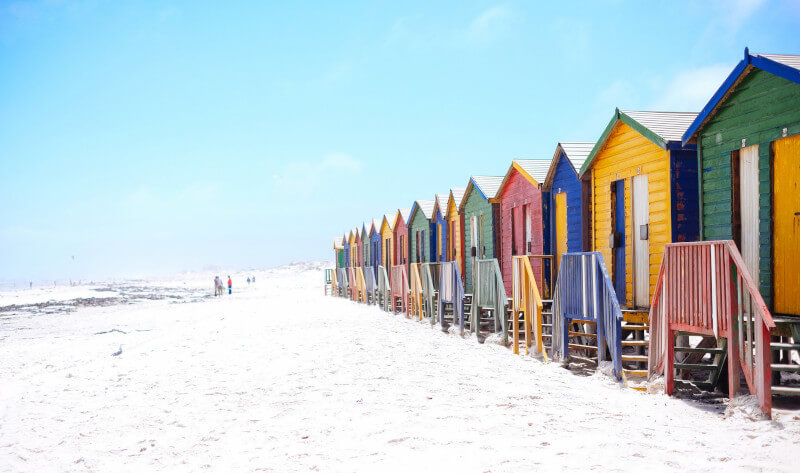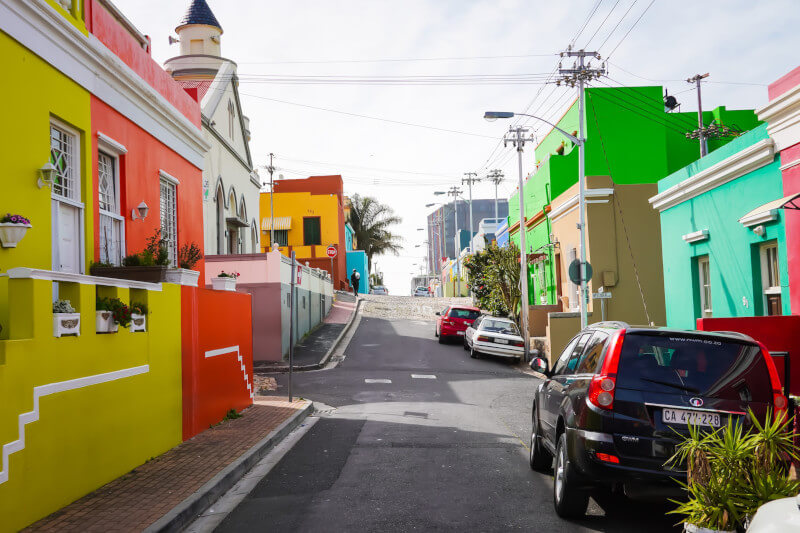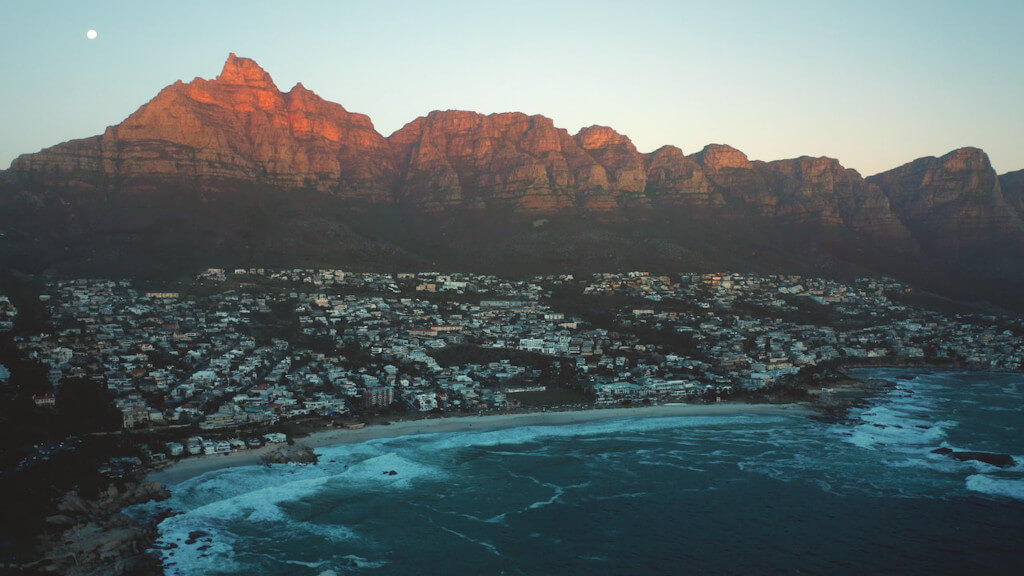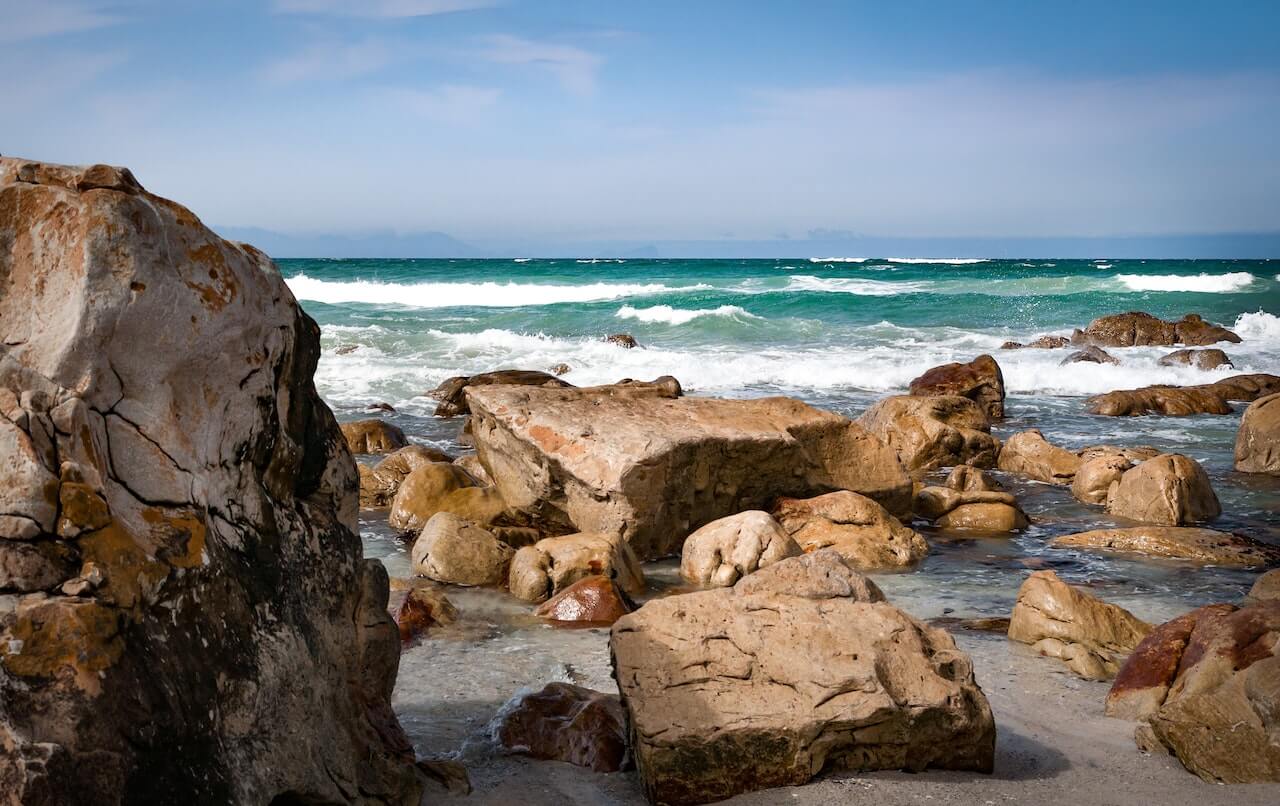I am currently relaxing on a beautiful beach in what appears to be the Caribbean, complete with crystal-clear water, towering palm trees, silky white sand, enormous large rocks, and quaint wooden huts. If it weren’t for the booming voice telling me to “Action,” I might be enticed to go snorkeling or lay out in the sun for a while.
This quickly brings me back to the realization that I am currently quite a distance from the Caribbean and that I’m working on the set of a production filmed in the United States that is located approximately 40 kilometers inland from Cape Town city in South Africa. Along with more than 90% of the rest of the production team, every single member of the art department as well as the building crew came from the local area.
Why is Cape Town Known For Filming Locations?

Scenic beauty, world-class cuisine, a luxurious lifestyle, and low cost of living all contribute to Cape Town’s allure as a filming location thanks to the city’s well-developed film infrastructure and hard-working crews.
Because crew incomes in Cape Town are anywhere from 25 to over 200 percent less expensive than in Europe, it’s simple to see why Cape Town is becoming the location of choice for worldwide shoots. Even when taking into account a discretionary contribution to the developing skills of trainees and the F.I.L.M. program, which was developed by the industry to guarantee a steady increase in the number of local crew members in the country, labor fringes remain relatively low at 4.45%. The amount of money paid out to apprentices on set can be used to partly offset the price of these “training outskirts.”
All of these factors contribute to making filming in the city a lot of fun, which is one reason why filmmakers keep coming back for more. My coworker, an Executive Producer, provided me with his succinct take on the filmmaking experience in Cape Town, which was as follows: “Wonderful! Nothing is missing. And it’s a wonderful location to be situated for a considerable amount of time.”
In Which Films have Cape Town Surroundings been used as Locations?
The city of Cape Town featured prominently in two movies that were huge hits at the box office in the United States in the previous year. The city served as a stand-in for Seattle in the science fiction action film Chronicle, which was directed by Josh Trank, but it also had a rare starring role as itself in the CIA-themed action thriller Safe House, which stars Denzel Washington and Ryan Reynolds.
The staff of The Chronicle traveled to several different production centers across the globe, visiting places such as Australia, New Zealand, Vancouver, Michigan, and Louisiana. In the end, they decided to come to Cape Town because of its world-class crews and its world-class infrastructural facilities. The downtown area of the city was utilized for the filming of innovative stunts and special effects scenes in which the superheroes “threw” cars into building structures. Simon Hansen, a South African visual effects supervisor, was singled out by Trank as the person who contributed to the creation of “flying as you’ve never seen in a movie before.” Additionally, filming took place at the brand-new Cape Town Film Studios.
In 2011, South Africa eliminated the maximum limit on the nationwide cash rebate and continued to increase it to 20% on all local spending. Additionally, if R3 million is spent on the country’s world-renowned post-production houses, the rebate will increase to 25%.
The Diversity and Opportunity That Cape Town Has to Offer

Approximately four million people call Cape Town, South Africa, home, and the city is surrounded by stunning mountains, including the world-famous Table Mountain. The Western Cape is home to beaches that look like the tropics, cityscapes, mountainous rocky coastal regions, rolling farmlands, forests, mountain ranges, lakes, sandy beaches, flatlands, underbelly towns and villages, farming, and industrial skylines, as well as buildings that range from numerous Colonial styles to Corinthian and Neo-Classical up to modern architecture. Another significant advantage is the relative vicinity of these locations. One day, a production might shoot in slick urban glamour; the next, it could shoot in a luscious forest; and the day after that, it could shoot in a dry desolate landscape.
During the middle of winter in Europe, Cape Town experiences sunny skies for fourteen hours per day. Individuals who hadn’t been there warned me about the safety of the city before I went there for the first time. However, even though the city has a fair amount of crime, just like every other major city in the world does, it requires only the same degree of caution that needs to be implemented in any major city.
Over the past ten years, a multitude of production companies have established themselves, with some focusing solely on still photography or television commercials, others on long-form, and still, others attempting to do both. As an example, YLO is one of the many world-class companies in Cape Town that prides itself on professionally executing both.
The prospects for South Africa are enormous, but so are the difficulties that lie ahead. Over fifty million people call this country their home, and within it can be found an astonishing variety of ethnic groups and indigenous tribes. With 11 official languages and amounts of non-official dialects, it is a nation rich in linguistic and cultural diversity. Apartheid generated unimaginable rifts and denied education to several people of black and mixed race, an inequality that many South Africans, unsurprisingly, are unable to forget in a short amount of time. When it comes to policymaking, the government is obligated to consider this.
The Industry in Cape Town Is Expanding

Outside of this thriving country with its young democracy, lively energy, and wonderful diversity is a film servicing sector that continues to develop strongly notwithstanding its challenges. Just in the past year, there have been over 200 different types of media produced, including commercials, unscripted shows, television series, animated films, long and short films, and documentaries. According to Film Commissioner Denis Lillie, there has been roughly a 25% increase in the amount of filming activity compared to the previous years.
Over the past ten years, a multitude of production companies has established themselves, with some focusing solely on still photography or television commercials, others on long-form, and still others attempting to do both. Choosing the appropriate service company is one of the most challenging tasks for international manufacturers. Because they are afraid of falling behind their rivals, the vast majority of businesses will never refuse work. Because of this, producers are at risk of finding themselves working with an overworked service company that is attempting to handle multiple productions at the same time.
However, if they search carefully, producers will locate a devoted company that will work with them to solve problems and will put their hearts and souls into ensuring that the production value is kept at a high level. Spending quality time doing research on this topic during the pre-production phase is going to be necessary for production to run smoothly in Cape Town. So why wait? Click here to start browsing through the portfolios of some of the best production work done in Cape Town.




